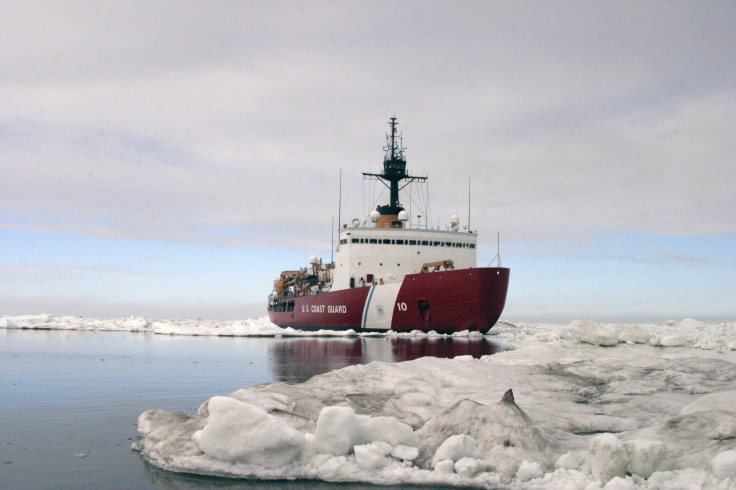Arctic Oil: Who Owns It? China, Russia And Other Nations Debate

The prospects for Arctic shipping and oil extraction in the new year loom large among representatives from polar nations gathered to deliberate the state of the region in Tromsø, Norway, this week.
Russia is at the Arctic Frontiers conference to ponder the event's theme of “Climate and Energy.” And China, too, is proving an eager participant. The weeklong meeting is the annual forum for world leaders to consider the Arctic through many lenses — as a scientific frontier, as a budding business opportunity for shipping firms and oil companies, and as a political arena replete with power grabs and cross-border cooperation.
The gathering of some 1,400 participants takes place amid growing international tension over which countries have rightful claims to the region. The opportunity to develop natural resources in the Arctic is vast as reservoirs there still hold 13 percent of the world’s oil and 30 percent of its natural gas, according to the U.S. Energy Information Administration. The cost of developing those resources, however, can run 50 percent to 100 percent higher than if the same reserves were to be tapped in Texas.
Last fall, Russia claimed a broad swath of ocean floor in the Arctic holding billions of tons of oil and gas, and more recently ramped up its military presence in the area.
At the conference, Alexander Sergunin of St. Petersburg State University and Alyson J.K. Bailes of University of Iceland weighed in on whether the Ukrainian crisis and Russia’s military buildup off its northern shore would set off alarm bells for other polar states.
Sergunin pointed to the role of the Arctic Council, an international governing body for the region, in assuaging these concerns. The U.S. will chair the council for two years beginning later this spring after taking the reigns from Canada. Admiral Robert J. Papp, a U.S. Arctic ambassador, has started a series of political visits to Russia and other Arctic nations, including his appearance as keynoter at the conference to set the stage for U.S. leadership.
Meanwhile, China continues to make clear its growing interest in the Arctic. Sun Xiansheng, the director general of China National Petroleum Corporation, said his country is ready to assist with the development of the region’s resources, according to Newsweek. The Chinese also wish to scout new trade routes that could cut the distance between Asia and Europe by 40 percent. China edged closer to the Arctic by receiving observer status in the Arctic Council in 2013 after declaring itself a “near Arctic” state.
This year’s conference opened with a debate on whether the area’s resources are still worth developing in a time of falling oil prices. Norway is expected to open new licenses off its shores soon, according to the Barents Observer.
“Those licenses will be licenses to lose money,” said Jens Ulltveit-Moe, an investor with Umoe, during the debate.
Others disagree. “Breaking price for production depends on the size and the field locations. Some fields might have a cost as low as $50 per barrel,” said Kjell Giæver, director of Petro Arctic, according to the Observer. The International Energy Agency still predicts a 37 percent rise in global energy demand by 2040.
Greg Leveille, of ConocoPhillips, in a presentation to the conference, called the booming development of unconventional oil and natural gas resources the “greatest energy success story of the 21st century.”
© Copyright IBTimes 2024. All rights reserved.





















